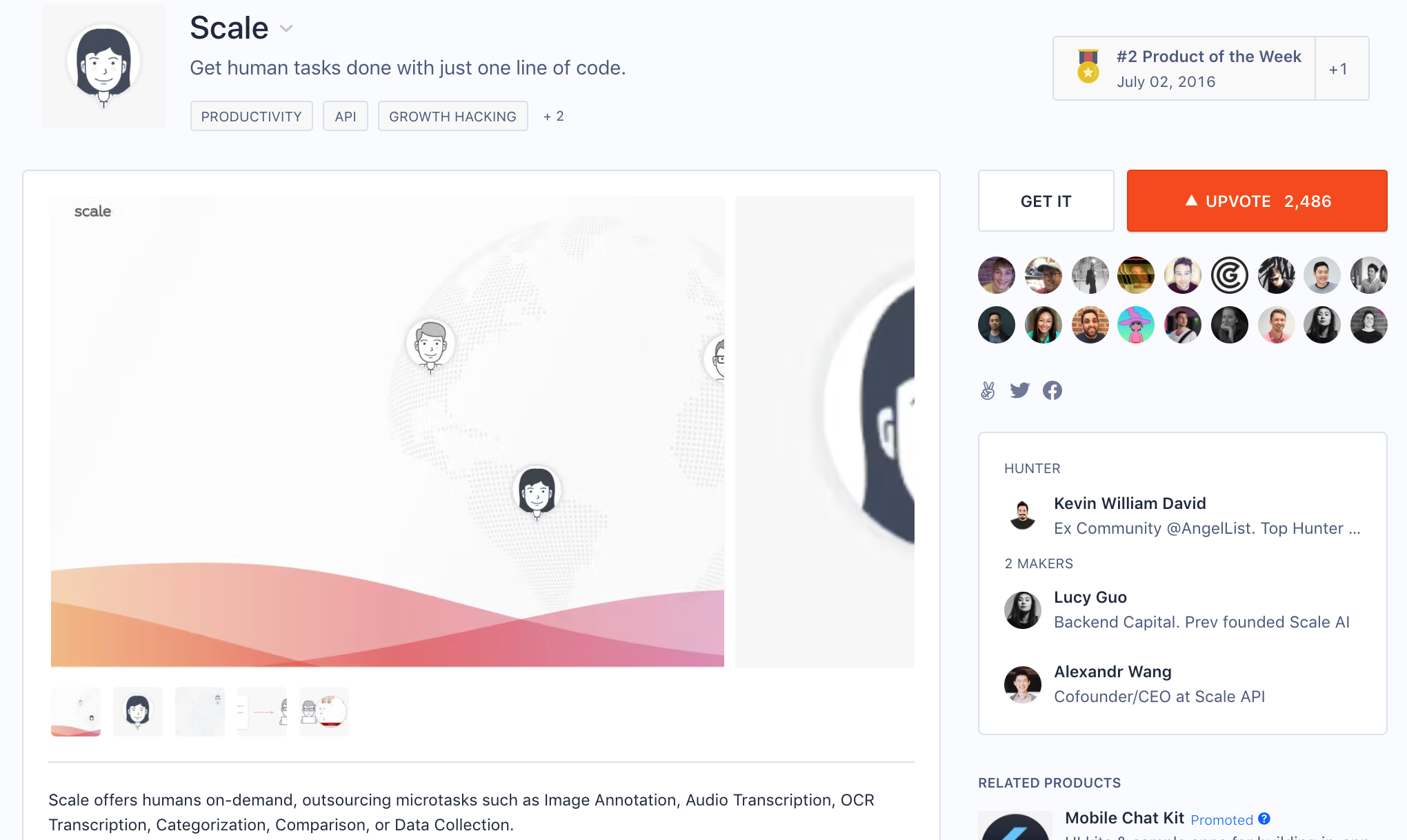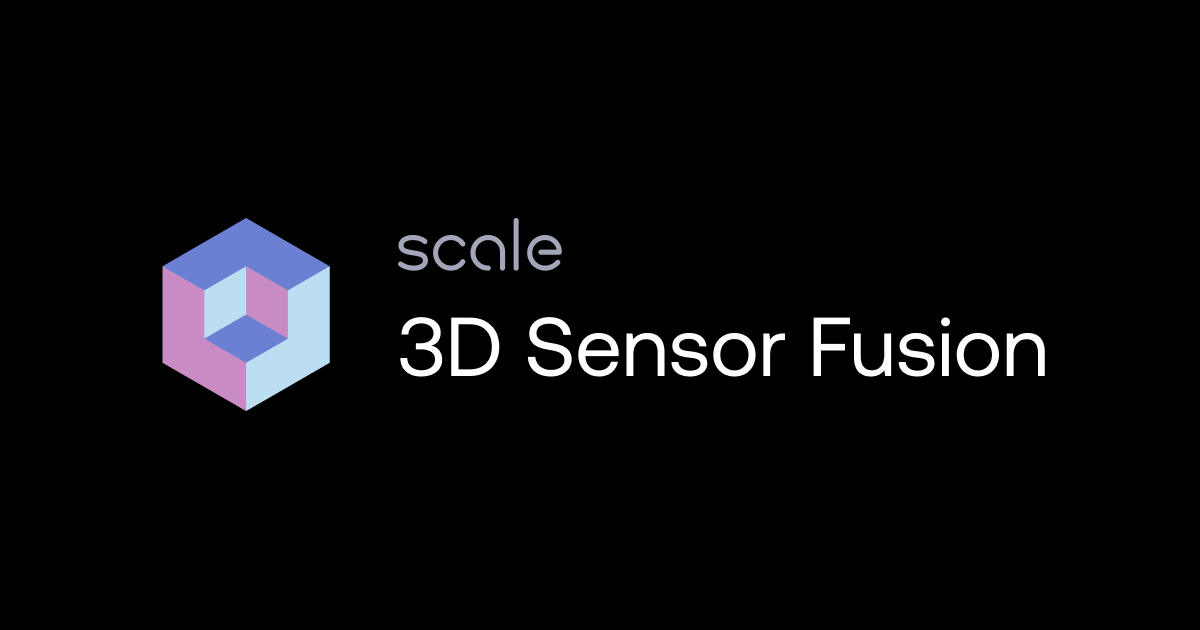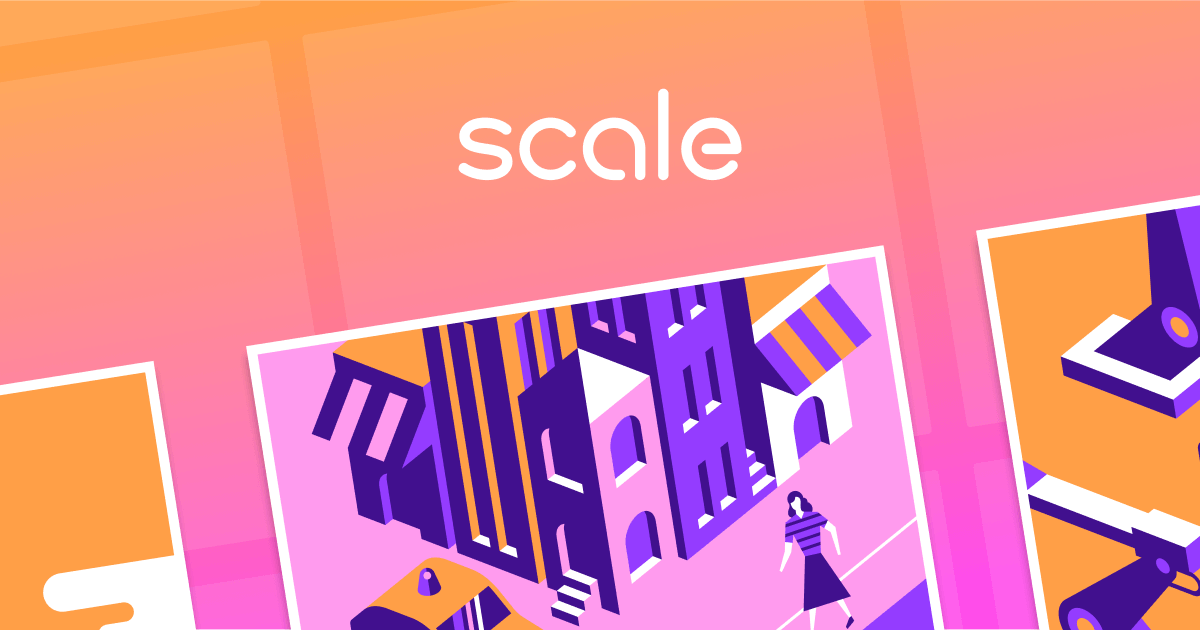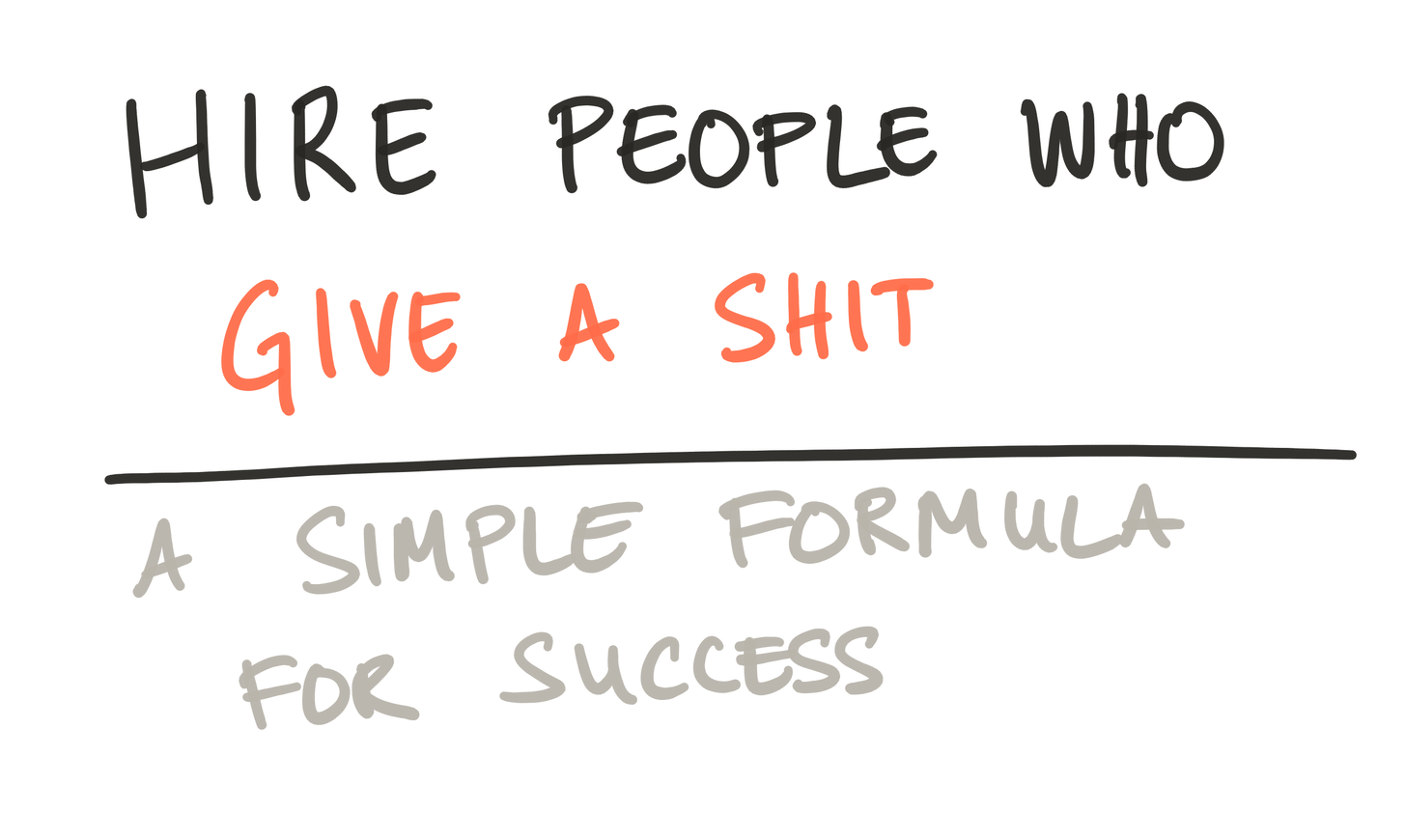The 83rd episode of Datacast is my conversation with Leigh-Marie Braswell, an investor at Founders Fund.
Our wide-ranging conversation touches on her early interest in solving math problems competitively; her undergraduate education at MIT and exposure to machine learning; her 4-year journey as the first product manager at Scale AI building 3D annotation products, scaling operational excellence, and instituting a relentless speed of execution; her foray into angel investing, joining Founders Fund, and being helpful as an investor; common threads between engineering, product, and venture; lesson learned from playing poker; and much more.
Please enjoy my conversation with Leigh-Marie!
Listen to the show on (1) Spotify, (2) Apple Podcasts, (3) Google Podcasts, (4) TuneIn, and (5) Stitcher
Key Takeaways
Here are the highlights from my conversation with Leigh-Marie:
On Formative Experiences Growing Up
I grew up in a small town in Alabama, very different from my current surrounding. Dance was something that everyone was pushed into, and there are definitely a lot of great lessons to learn from committing to a hobby at an early age. Ultimately, when I went into the local middle school, I tried out their math team and discovered my love of solving challenging problems. That was the first time I saw problems that truly tested my critical thinking ability and made me very creative. I became addicted to doing more of that and went down that rabbit hole by going into math camp outside of the state. I saw that Phillips Exeter Academy was the best place to go in the US for competitive math, so I actually came up with a pitch for my parents (like Powerpoint Slides) on why I should go and why it was dangerous for me to drive to this magnet school. Thankfully, they were highly supportive and were able to send me there for the last two years of high school.
Exeter was a head start in terms of the experiences people have in college. I got a giant course catalog with courses like advanced economics and quantum mechanics. I was around many people who were a lot smarter than me. It was just a great experience that pushed me intellectually and showed me a lot more diversity of thought than I had growing up.
On Studying at MIT
When I started at MIT, I already got a lot of coursework done from Exeter and had some spare time to involve with a lot of clubs like the poker club and the business club. I also optimized for the diversity of internship experiences. My favorite classes at MIT were the algorithm and machine learning ones when I realized this is the magic marriage between math and practical industry applications. That’s ultimately a large part of what led me to want to work on ML after college.
MIT course load was very theoretical, and it could be easy to get swept up into the research and academia track. But my practical internship experiences made me realize how exciting the industry could be. It’s a narrative violation: MIT is sometimes painted as a place where everyone is very theoretical and academic, but many B2B enterprise unicorns have had an MIT founder in the past few years. So there is a strong contingent of people who are technical and enterprising.
On Finance Internships
Jane Street taught me how to quantify risk and be okay with taking risks, as long as there’s a positive expected value (EV). From day 1, the older traders would literally offer us maybe like a 1.1 to 1 odds on a coin flip, and we were expected to always take that positive EV bet. We should be willing to put our money where our mouth is if we know that the odds are in our favor. That was sort of a blessing that underpins the whole internship, and I ultimately take that with me as a VC and a poker player.
Both Jane Street and Blend also taught me that there are so many inefficiencies in the finance industry (i.e., the mortgage application process). Having a party like Blend to come in and streamline parts of that process makes things work much better and saves people time and money. At Jane Street, I didn’t realize how much trading happens over the phone. A few years ago, I saw how trading is hard, even for institutions, because data access is not democratized. Now we are seeing trading apps and infrastructure that happen on the blockchain, so it totally makes sense right now for financial institutions to use them.
One area that I’ve seen and heard a lot about lately is trading things that aren’t public equities. Why can’t an average person buy a stake in any private company? Why can’t we have different deviates on private companies? Many players build platforms to solve these issues, but it’s not a super universal experience yet. I believe there’s a lot to do with democratizing access to asset classes and information.
On Interning at Google
At Google, I helped build NLP models to predict entity sentiment. The main thing that I learned was how amazing the ML infrastructure at Google is. Google has tools to do everything, such as tuning hyper-parameters, deploying models, or retraining models. I saw how different it was when I was in my MIT class training a model versus when I was at Google training a model. Additionally, I learned that, even at Google, the training data process was the most painful part of training an ML model. The data we had was sparse, hard to collect, and error-ridden. When I started talking to Alex Wang about Scale, I immediately had related pain points when I was an ML engineer.
Talking about product management at Google, there’s no better place to get the PM playbook since they designed the first APM program. It taught me important aspects of being a PM when dealing with multiple stakeholders and optimizing processes.
On Joining Scale AI
I could point to my own understanding of the pain point that Scale was solving — the need for training data for deep learning. There was also my desire to work on ML and with ML engineers, who are the end customers of Scale. There were a lot of companies that I could have joined, so I couldn’t understate the importance of Alex and the early team that he had assembled. I knew that I would probably never have such faith in a team ever again. Alex probably has the highest combination of IQ and EQ of any person I’ve ever met (and probably in the top few I’ve met now), so it was just such a special opportunity to join.
For the high potential technical people, the big tech companies are the stable opportunities always there. There is no urgency for you to join a company that hires hundreds of thousands of people every year if you have the skills to be able to pick whether to work at a startup or a big tech company. If you find a cool startup, I suggest just going for it. You will learn so much, regardless of how the startup turns out. It’s not like you are limiting your opportunities down the line. You’ll probably go into the next career with much more context in the actual nuts and bolts of how things are built.
On Labeled Data As The Bottleneck
The first thing you have to believe why training data is extremely important is because deep learning is here to stay. Deep learning is a form of ML that requires a ton of labeled training examples to work correctly. Think about a very common use case of deep learning like object detection for self-driving. For the deep learning algorithm to identify cars in 99.9% of all scenarios, they need to be given different edge cases such as what a car could look like (models, orientations, lighting conditions, etc.). Thus, you need a ton of labeled training data to train your deep learning model to predict the cars, which is extremely expensive to collect. There has been research done on methods like one-shot or few-shot learning. But to my knowledge, they haven’t really caught up in popularity. Even the most sophisticated ML groups use deep learning for their production models, so training data is the necessary input for those use cases.
On Managing The Sensor Fusion Annotation Product
In the early days of a startup, whether pre-product-market-fit or very early product-market-fit, it’s so important to listen to your customers because ultimately, especially if you are a B2B product, you are solving their problems and hopefully, they will pay you for solving these problems. I think very early on, many good product decisions that we made were because we had good relationships with our customers, and we were able to build a general product that satisfied a lot of their pain points.
Furthermore, you should continuously ask yourself why not. At an early-stage startup, you are a problem solver and will do anything to solve the problem. At Scale, sometimes it seemed almost impossible that we’d be able to provide this much labeled data with the current set of tooling and the current set of people. But we really pushed ourselves and always asked why not. We figured out a way to make it work more often than not. Some of my fondest memories at Scale were making training videos for taskers and wearing these different hats.
Picking the customers you have close partnerships with will create a product that ultimately you can sell widely. If the customers ask for feedback or tips, ask how they are doing this internally. What’s interesting about Scale is that we don’t just have the enterprise customer. We also have the human annotators working on the task. We would frequently be sharing our screens with them and watching what they were doing. The best feedback is literally a video of what they’re doing. We would go down to customers’ offices in the South Bay and fly to see our taskers all around the world.
On Scale’s Hyper-growth Phases
Scale, from day 1, has been a very operational business. It was all about coordinating literally hundreds of thousands of people around the world to do these tasks, whether LiDAR labeling or entity tagging. That’s the crux of the problem. The insight that we had, which was different than many of our competitors, was that we couldn’t just give people the tools. The tricky part to build was the quality control system. For each milestone in our growth (in terms of volume of tasks that we were doing), that quality control system had to become more sophisticated, else there would be quality problems, and we wouldn’t be able to get through the task. We needed to figure out how to automate confidence on each label or each unit of work. It started very manually, like literally having people we trusted to look at every task. As we scaled up, we would have basic automated checks, ML checks, then a dynamic level of review. Basically, we have to make the system a lot more sophisticated at each level of scaling and each new logo that we got with maybe a slightly different use case. Building the labeling tools is the easy part.
The most naive customer prioritization is based on total contract value. But I think a better prioritization strategy is to look at what generalizes well and where the industry is going. At the time, Scale’s 3D and cuboid segmentation were not things with the biggest total contract value. There was a lot more demand for 2D. But we knew that by building products for those problems, we would get a lot better data (as to like the market size). We suspected that the industry was headed, where people were spending money, and there were some initial proof points. It was a great decision because it turned out that people were spending a ton of money labeling 3D data internally. As an enterprise business, you need to do your research and develop an opinion about whether the industry is going and how general your product features can be across different customers.
On Speed of Execution
There are a few reasons why speed is really critical for Scale:
First of all, labeled data is a necessary input into the ML engineer’s workflow, so it’s mission-critical to get as much labeled data as high-quality and covers many other edge cases as quickly as possible. That definitely necessitated speed because that’s the criteria by which our customers were measuring us on.
Secondarily, once people realized that Scale was taking off and there was a giant need for training data, a ton of competitors popped up. When you have competitors, it becomes a lot harder to be the leading company in the space if you don’t accelerate your progress. That’s another reason why we needed to move very quickly.
Regarding how we instituted the focus on speed, we screened for that quality in people that we hired. There’s a blog post that Alex wrote about hiring people who really care about their work. That’s something we focused on very early on. So we had a lot of ambitious people joining (ex-founders, with startup experience, etc.). That combination of scrappy people pushed us to work harder and smarter. As Scale grew much larger, we made the need for speed and iteration part of the company’s credos. There would be a list of different credos that would get repeated and called out once somebody exemplifies them.
On Hiring In The Early Days
One thing that I emphasize is the importance of having a really good behavioral interview. That means having very good questions that will cover signals that hopefully correlate with how people act once they join your company and start working. In terms of the types of people we want to select, we want those who take personal responsibility for their decisions and work, love going down many rabbit holes, and are naturally curious. One thing that stood out to me when I was jamming on potential behavioral interview questions with people at Scale is that we wanted to select somebody who can stare down possible failure in the face and truly believe that they can change it. At a startup, the cards are definitely stacked against you, so you need people who believe that they can change how things will turn out.
We realized early on that it’s better to be shameless. That basically means everyone in our network should know that we work at Scale, how well things are going, and how exciting of the time it is to be working on those sorts of problems. We would constantly give talks at different schools and post on social media. I personally annoyed my friends all the time by telling them here’s what we are doing at Scale, here’s why they would be perfect for this role, and whether they want to learn more. Even if you don’t think somebody is looking, give them the option or more information about how they could join.
On Uncompressing Understandings
We did a lot of things in person, such as meetings and jam sessions, because that’s the least compressed way of conveying information. It’s interesting because there’s a tradeoff though. Obviously, the more you do in person, unless you write things down, it can be negative since it takes up a lot of people’s time. As the company grew, we had to be more cognizant of that.
One of my biggest mistakes early on as a product manager was that I thought compressing information and saving engineers’ time was something I should optimize for. I would go to a customer’s meeting, take good notes, and give them to the engineers. I didn’t want to disturb any of your development time because when I was an engineer, I knew that if I was in the flow and somebody disturbed me, it could be challenging to recover from that. Ultimately, I reversed my stance on that when I realized that you unintentionally lose a lot of things when you compress information. So at least having engineers in some meetings directly with customers and labelers actually makes you more efficient in the long run because people have a lot more context.
On Angel Investing
If you are getting started with angel investing, I recommend using the civil heuristic of investing in awesome people you trust. More often than not, when you first get involved in angel investing, you invest in your close friends, which got me into it. Ideally, you recommend an investment in an area that you understand well or want to learn more about. When I would talk to close friends who were doing something with ML at that point, I thought that I had done diligence myself, I trusted this person, and I’d love to work with them. So why not angel invest?
Once I started doing that, I realized how awesome it was to learn about different types of companies and how fun it was to go through the early days with my friends. I also tried to be one of the higher value-to-money investors on their cap table. It was just a super fun experience. When you start providing value, your friends will refer you to more companies. Then you can reach out to them, develop a thesis from your day-to-day work, or start sourcing companies. From there, you become more involved in the ecosystem and establish a brand for yourself. I did that for one year and treated it as a learning experience.
There’s a really good book on angel investing by Jason Calanacis, in which he equips that you can either spend money on an MBA or you can angel invest. I definitely can see its value if you are very principled about your angel investing and learn from your angel investments.
On Joining Founders Fund
I have always admired Founders Fund’s track record. They invested in Facebook, Stripe, SpaceX, Palantir, etc. It’s incredible the kind of bets they have made in the future and how those turned out. Secondly, I love their general ethos (which is clear in their manifesto) of being brave, questioning the status quo even when it’s an unpopular move, and being honest. Ultimately, by joining Founders Fund, I get the chance to partner with companies that are passionate about building a better future. I am not afraid to make a crazy bet on them and other companies in their portfolio. The manifesto resonates well with me, and talking to the Founders Fund team pushes me to be a much deeper thinker.
The biggest misconception about being a VC is that your day will be more relaxing than being in a startup. The best VC works extremely hard. It’s a job in which there’s always a company you could be meeting, there’s always something else you could be learning, there’re always times you could be more responsive and proactive. It’s tough figuring out your own strategy on how to best partner with companies, how to find and do due diligence on them, and how to ultimately partner with them.
On Proving Value As A New Investor
When I joined Founders Fund, by the necessity of me being the newest team member, I was the freshest out of operating. So I’ve been providing a lot of operator’s perspectives on different deals: talking to customers, doing product diligence for early-stage startups, and providing a technical evaluation for later-stage startups. That’s how I’ve been showing value from day 1.
Secondarily, I utilized my network from Scale, internships, and school. Because I look at dev tools, data tools, and ML infrastructure companies, I now have friends who are angels or practitioners and frequently talk about these areas. If I find a good company, I’ll talk about it with maybe five people in my network closest to that area. Having these close-knit diligence groups has been super helpful.
On the hiring side, I always try to utilize my network and find friends who are trying to get into startups or change jobs. I am happy to make matches because that’s where an investor can be really helpful. I’d also provide general advice for questions: When do I hire the first product manager? What kind of product manager do I want them to be? How should I price my product and set up a sales team for enterprise business? I am always happy to share my Scale experience as I got a ton of insights seeing Scale grow over four years.
On Career Transitions
When you are an engineer, you learn how to build the product. When you are a product manager, you work with most arms of the business to build it (whether sales, marketing, design, business ops, or data) and accomplish the overall KPI. When you are a venture capitalist, you evaluate all types of businesses and learn how to grow them as you partner with more companies. It’s even a more zoomed-out version.
I think the unifying thread might be finding your superpower, whether that’s a specific type of engineering or a differentiated investment strategy. Ultimately, you want to master the basics, figure out what you’re good at, and lean into that.
On Lesson From Playing Poker
Every decision that you make is a bet on the future. There’s some probability of it working out, there’s some probability of it not working out, but the goal over time is to make enough good bets such that your decisions will be right in the fullness of time.
At Jane Street, people would have spreadsheets. Every time we played a poker game, we would put out how much money we had won or how much we had lost. We could look back over our last 20 games and evaluate whether we were making good decisions or not. You could be a great poker player and had a really bad game because you were unlucky even though you played it correctly. But over many days and many games, you’d be able to see your positive expected value. That’s how you should think of your career too.
Show Notes
(01:43) Leigh-Marie shared her formative experiences of her childhood — growing up in Alabama, solving math problems competitively, and going to Phillips Exeter Academy.
(04:21) Leigh-Marie discussed her undergraduate experience at MIT studying Math with Computer Science.
(06:41) Leigh-Marie went through her internship experience at Jane Street and Blend.
(10:07) Leigh-Marie recalled lessons learned from interning at Google — as an ML engineer for the Research and Machine Intelligence Team and an Associate Product Manager for the Chrome Web Platform team.
(13:39) Leigh-Marie talked about her decision to join the early founding team of Scale API (now known as Scale AI) after finishing MIT.
(17:30) Leigh-Marie explained why labeled data is the key bottleneck to the growth of the ML industry.
(20:02) Leigh-Marie discussed the engineering and product challenges of dealing with 3D sensor data.
(22:33) Leigh-Marie unpacked her experience building Scale’s Sensor Fusion Annotation product from scratch, from gathering customer interests to building the initial MVP.
(26:45) Leigh-Marie talked about learning curves during Scale’s scaling phase, as the product had more advanced features and the customer list grew.
(32:21) Leigh-Marie dived into Scale’s credo emphasizing a relentless speed of execution.
(35:00) Leigh-Marie shared valuable hiring lessons at Scale’s early days (Read Alex’s blog post about Scale’s hiring philosophy).
(38:05) Leigh-Marie went over the importance of developing uncompressed understandings of how everything works together as Scale grows.
(41:39) Leigh-Marie shared her advice for folks who want to get into angel investing.
(44:02) Leigh-Marie shared her motivation behind joining Founders Fund (Read Founders Fund’s investment manifesto).
(46:56) Leigh-Marie went over how she has been proving value upfront and forming investment theses as a new investor.
(49:10) Leigh-Marie shared advice she has been giving to companies regarding their product-market fit and go-to-market fit strategies.
(50:38) Leigh-Marie reflected on her transitions from software engineering to product management to venture capital.
(52:31) Leigh-Marie shared the lesson learned from playing poker that benefits her careers in startup and venture.
(54:19) Closing segment.
Leigh-Marie’s Contact Info
People
Books
“Angels” (by Jason Calanacis)
“Zero To One” (by Blake Masters and Peter Thiel)
“7 Powers: The Foundations of Business Strategy” (by Hamilton Helmer)
Blog Posts
“The One Data Platform To Rule Them All” (July 2021)
“Startup Opportunities in Machine Learning Infrastructure” (Sep 2021)
About the show
Datacast features long-form, in-depth conversations with practitioners and researchers in the data community to walk through their professional journeys and unpack the lessons learned along the way. I invite guests coming from a wide range of career paths — from scientists and analysts to founders and investors — to analyze the case for using data in the real world and extract their mental models (“the WHY and the HOW”) behind their pursuits. Hopefully, these conversations can serve as valuable tools for early-stage data professionals as they navigate their own careers in the exciting data universe.
Datacast is produced and edited by James Le. Get in touch with feedback or guest suggestions by emailing khanhle.1013@gmail.com.
Subscribe by searching for Datacast wherever you get podcasts or click one of the links below:
If you’re new, see the podcast homepage for the most recent episodes to listen to, or browse the full guest list.


















